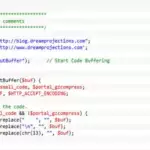Question: Check whether the quadratic equation 2x^2 – 3x + 5 = 0 has real roots or not. Which of the following options accurately describes the nature of the roots?
- Two distinct real roots.
- The equation has real roots.
- Two complex roots.
- The equation has no real roots.
Answer: D. The equation has no real roots.
2x^2 – 3x + 5 = 0 Solution:
- Analyzing the quadratic equation 2x^2 – 3x + 5 = 0 involves utilizing the discriminant (Δ) formula. The discriminant is calculated as Δ = b^2 – 4ac, where a, b, and c correspond to the coefficients within the quadratic equation ax^2 + bx + c = 0.
- For the given equation, the coefficients are a = 2, b = -3, and c = 5. Substituting these values into the discriminant formula yields Δ = (-3)^2 – 4 * 2 * 5 = 9 – 40 = -31.
- Given that the discriminant is negative (Δ < 0), the quadratic equation 2x^2 – 3x + 5 = 0 does not possess real roots. Instead, it features two complex roots. Thus, the accurate answer is: D) The equation has no real roots.
- This implies that the graph of the quadratic equation doesn’t intersect with the x-axis, signifying the absence of real solutions for this specific equation. Transitioning into a deeper understanding of the roots’ nature, it becomes evident that the complex roots arise due to the negative discriminant, indicating the impossibility of finding real solutions.
Find the roots of the quadratic equation x² – 11x + 28 = 0 by using the quadratic formula.
Please visit us to learn more about more Questions and Information.




